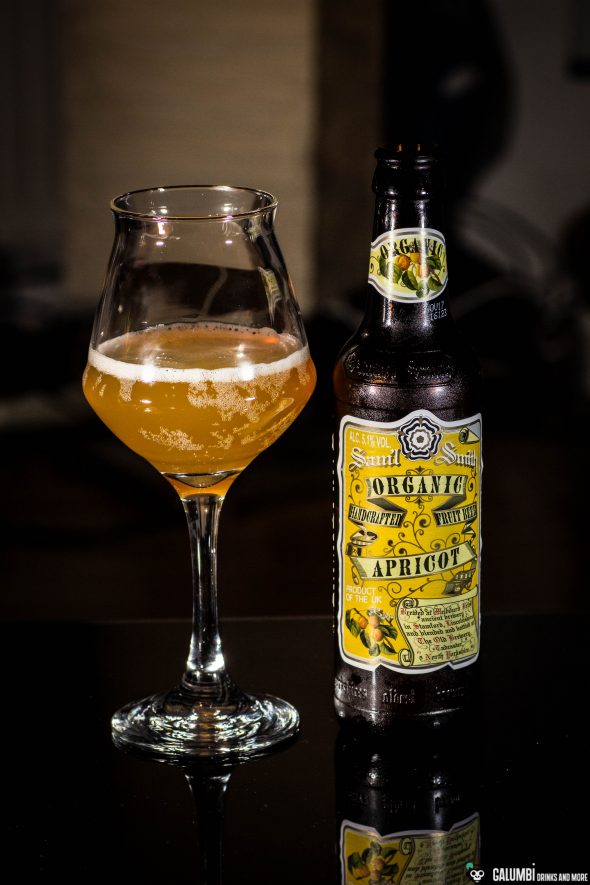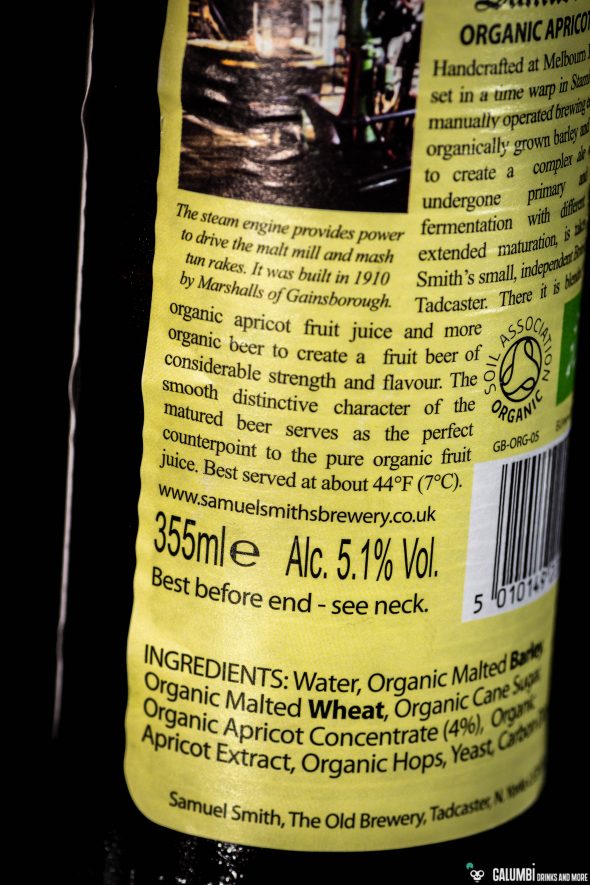
Today I’m once again writing about beer. About an English beer to be precise. In the English town of Tadcaster, North Yorkshire the traditional Samuel Smith Brewery produces a broad variety of beer styles. I have already presented an Imperial Stout from that brewery some time ago here on the blog, a beer that I really love to drink. I also referred to some interesting traditions in the context of beer in Tadcaster in that article. It is all the more surprising that today’s Samuel Smith beer is not brewed in Tadcaster.
At least it is not entirely made there. But let’s have a closer look on the beer itself. It is, in fact, a fruit beer, a category of beers that you always should approach with a little caution because outside of Germany – and here the German “Reinheitsgebot” (purity law) certainly has its advantages – some fruit beers consist of all sorts of additives that I definitely don’t want to have in my beer. Even today’s fruit beer would not be allowed to be sold in Germany under the name “beer” (unless it is explicitly labeled as an imported product), but nonetheless it is made on a quite solid foundation. The only drawback for me is the addition of sugar which I really do not like in beers, especially in fruit beers. But at least Samuel Smith relies on “organic ingredients”.
But first things first: The Samuel Smith Organic Apricot is brewed in Stamford, in the county of Lincolnshire at the Melbourn Brothers All Saints Brewery which exists since the year of 1825. The people at the All Saints Brewery are particularly proud about their very old steam brewing equipment that is manually operated and specialized in the production of fruit beers. So this brewery is now cooperating with Samuel Smith’s in the making of the Samuel Smith Organic Apricot and exclusively uses – as already stated – organic ingredients. The beer is brewed in Stamford in the style of British Ales and both primary and secondary fermentation take place there using various types of yeast. The finished Ale is then brought back to Tadcaster to the real Samuel Smith Brewery and there it is blended with organic apricot juice (apricot juice made from concentrate, though and at a total of only about 4% – compared to some better Lambics this is not very much), organic apricot extract and other organic -beers (no precise information is provided here from the manufacturer) So in the end you’ll find “Samuel Smith, The Old Brewery, Tadcaster, N. Yorkshire” on the bottles label.

But now to the tasting:
On the nose, you’ll immediately notice that you’re dealing with a fruit beer: the yellowy-turbid brew offers beautifully integrated apricot with subtle citrus notes, a little yeast and fine notes of roasted barley malt. The apricot is complex indeed: hints of apricot jam are there as well as a slightly bitterer apricot peel.
In terms of taste there is again intensely fruity apricot. The beer is quite complex and also offers malty tones of ale. Once again the only drawback: It is a little bit too sweet for my taste. I would love to try it without the addition of sugar and with a little more apricot inside. But here certainly some economic reasons will play a role. Both in terms of production as well as in terms of pleasing the crowds.
The Samuel Smith Organic Apricot is bottled with 5.1% vol.


Buying sources: You will probably have to consult a specialized trader in order to get your hands on a bottle of this beer outside the United Kingdom. I was quite lucky that a good, old friend from the former German capital city of Bonn brought a bottle of it from a visit to the “Bonner Bierbörse”.
